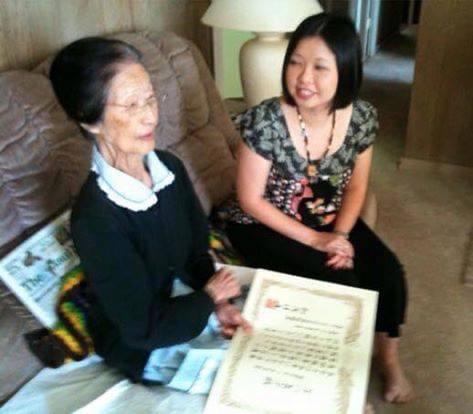
2 minute read
The Power 9
By: Melanie Martin
Now maybe more than ever, it’s important to remember to take time to care for yourself. HDOT is partnering with the Blue Zones Project to help our employees live healthier, longer and happier lives. The Blue Zones Project is built on nine fundamental principles called the Power 9 which is based on research on the world’s longest-lived people.
1. MOVE NATURALLY The world’s longest-lived people don’t necessarily go to a gym, or run marathons. They do gardening, housework and other daily activities to keep moving. Yoshiko Araki, the grandmother of DEP-S Lynn Araki-Regan, lived until nearly 101 years old. A widow for nearly 60 years, she drove until her late 90s, and credited her long life to eating fish instead of red meats, not overeating, massaging her feet to improve blood flow, and her faith in God. Beans, including fava, black, soy and lentils, are the cornerstone of most centenarian diets. Meat— mostly pork—is eaten on average only five times per month. Serving sizes are 3-4 oz., about the size of deck or cards.
6. WINE @ FIVE My favorite! Moderate drinkers outlive non-drinkers. The trick is to drink 1-2 glasses per day (preferably Sardinian Cannonau wine), with friends and/or with food. And no, you can’t save up all weekend and have 14 drinks on Saturday.
2. PURPOSE The Okinawans call it “Ikigai” and the Nicoyans call it “plan de vida;” for both it translates to “why I wake up in the morning.” Knowing your sense of purpose is worth up to seven years of extra life expectancy. Take a Purpose Workshop the next time it’s offered by the Blue Zones Project.
3. DOWN SHIFT Find a routine to manage your stress. Okinawans take a few moments each day to remember their ancestors, Adventists pray, Ikarians take a nap and Sardinians do happy hour.
4. 80% RULE Eat until you are 80% full, and not until you get a “kanak attack,” People in the Blue Zones eat their smallest meal in the late afternoon or early evening and then they don’t eat any more the rest of the day. 7. BELONG All but five of the 263 centenarians interviewed by Blue Zones researchers belonged to some faith-based community. Denomination doesn’t seem to matter. Research shows that attending faith-based services four times per month will add 4-14 years of life expectancy.
8. FAMILY FIRST Successful centenarians in the Blue Zones put their families first. This means keeping aging parents and grandparents nearby or in the home (It lowers disease and mortality rates of children in the home too.).
9. RIGHT TRIBE The world’s longest-lived people chose–or were born into–social circles that supported healthy behaviors, Okinawans created ”moais”–groups of five friends that committed to each other for life.
To read more about the Blue Zones visit info. bluezonesproject.com/bzphawaii.









